With nature in full bloom, May is undoubtedly one of the most beautiful months of the year. It also marks the month of the Virgin Mary in Lebanon. Religious anthropologist, researcher and tourism consultant Nour Farra-Haddad tells us more.
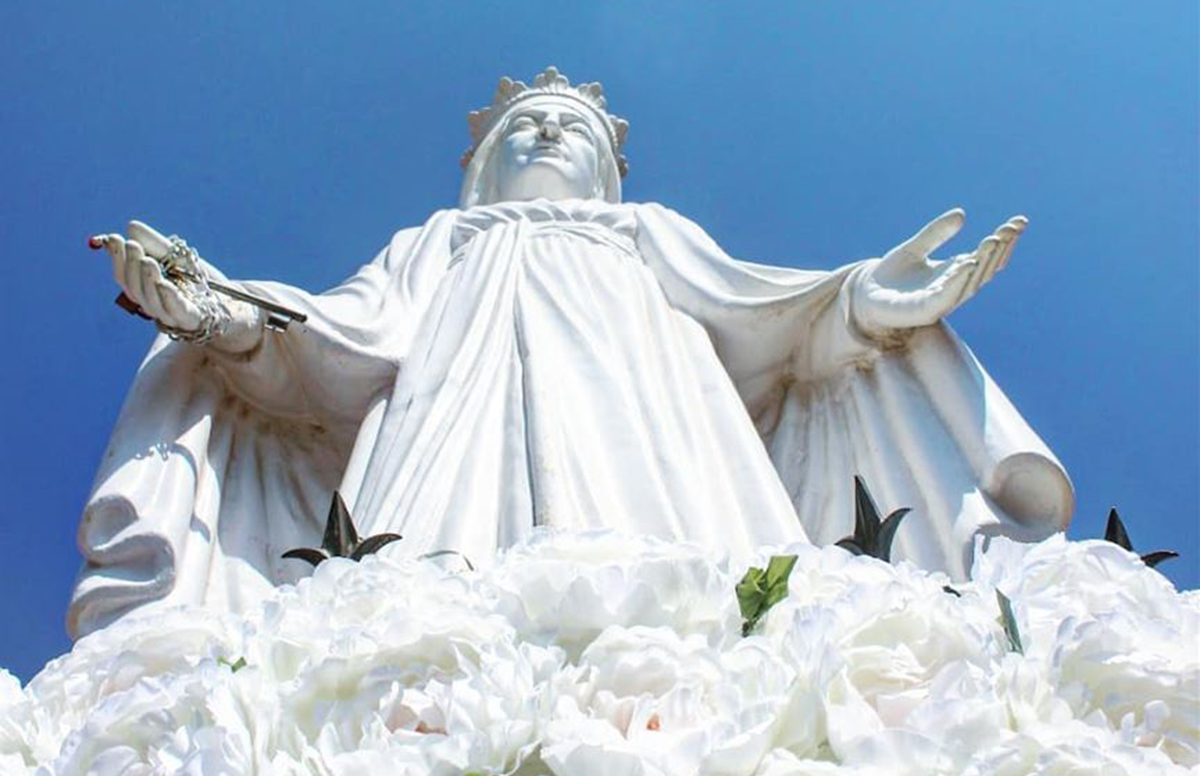
Photo – Ali El Souheil
The tradition of the month of May being dedicated to the Virgin Mary can be traced back to the 19th century. Special prayers were organized on each day of the month, and this ritual is still practiced today.
It is common for parishes to have a daily recitation of the Rosary during May, and many erect a special May altar with a statue or a picture of Mary as a reminder of this special time. Indeed, the month of month of the Virgin Mary is not only celebrated in churches but also in homes. Additionally, it is a long-standing tradition to crown the statue of Mary during May — a custom known as the May Crowning. Often, the crown is made of beautiful blossoms, representing Mary’s beauty and virtue. In Lebanon, the statues of the Virgin Mary are beautifully dressed and temporary altars are erected. In the streets of cities and villages across the country, many ladies and young girls wear blue garments to honor the Virgin Mary. This gesture symbolizes a vow made to Mary.
The Virgin Mary occupies an important and unique place within the Christian, Judaic and Muslim religions. This is very much the case throughout the Middle East, particularly in Lebanon. Mary can thus be considered an excellent source of dialogue between Christians and Muslims and a symbol of national unity.
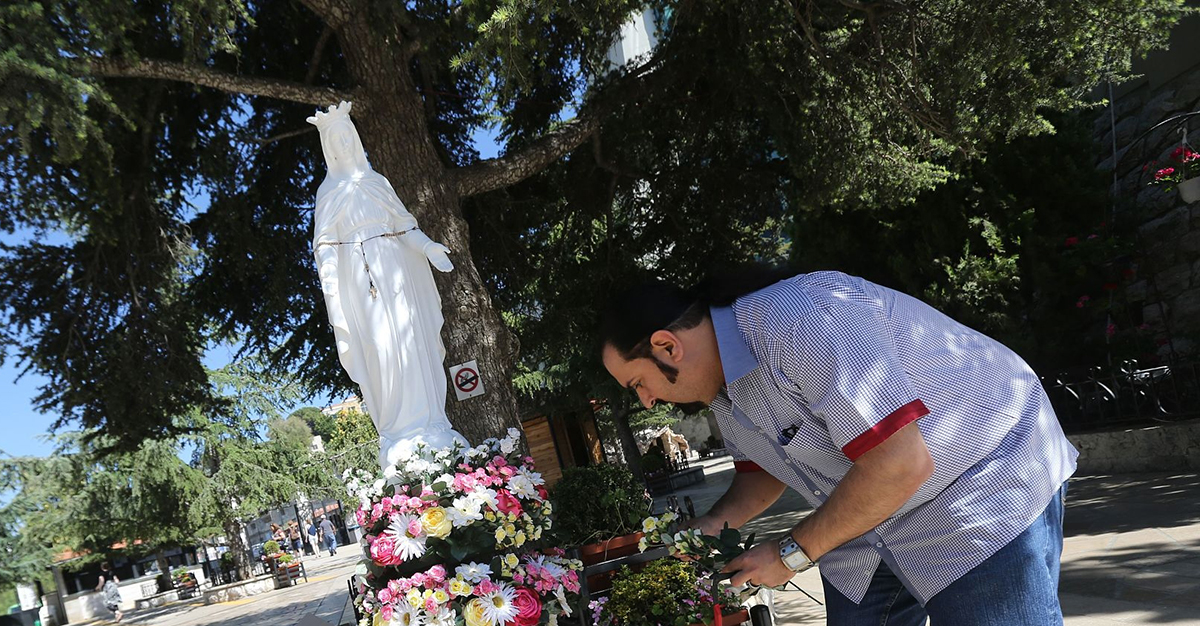
Photo – Joseph Eid
There are more than 1,000 religious sites dedicated to the Virgin Mary in Lebanon, monasteries, shrines, churches, chapels and oratories. The large majority of these sites are Christian, noting that only one Muslim site in Lebanon is dedicated to the Virgin Mary: Our Lady of Saaydeh.
The Virgin Mary is known by many different titles: Queen, Blessed Mother, Our Lady; epithets (such as Our Lady of the Sea and Our Lady of the Wind); invocations (Mother of Mercy, Our Lady of the Breast, of the Milk, etc.); and other names to reflect specific locations, such as Our Lady of Beshouat.
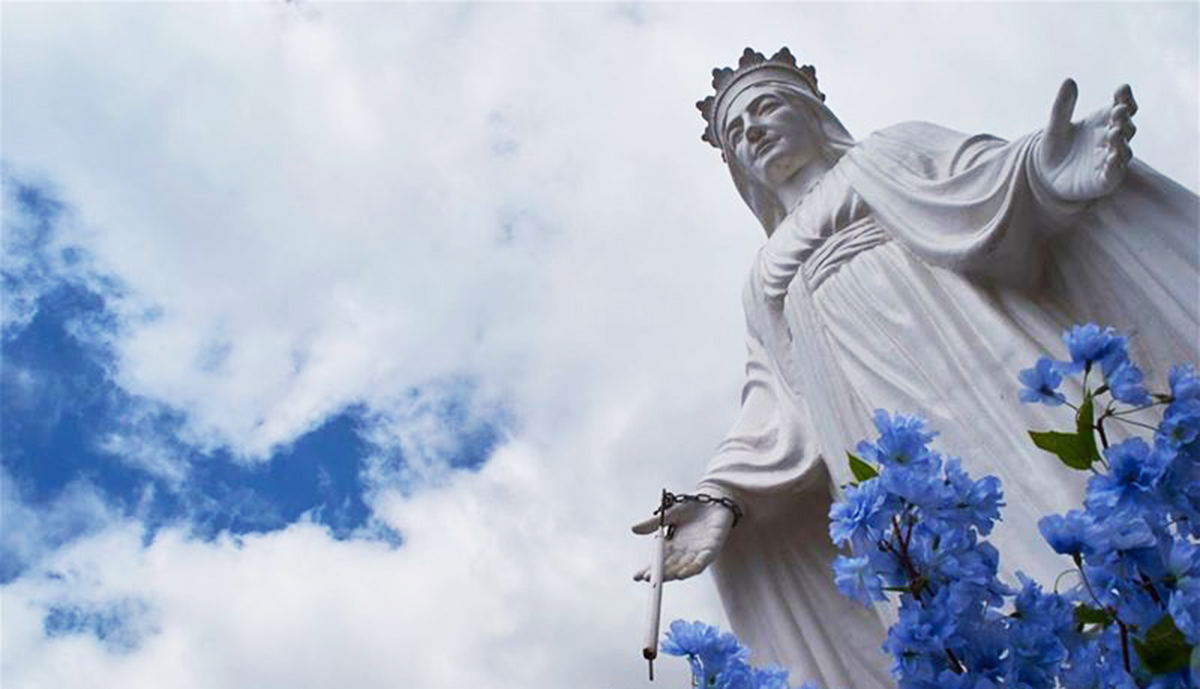
Photo – Joyce Aways
In Lebanon there are dozens of different titles for the Virgin Mary, from very original titles like Saydet El Ghesseleh (Our Lady of the washing machine) in Qobayat to refreshing titles like Our Lady of the Flower.
Spring is an amazing time to visit the Afqa Cave and the remains of the temple of Venus, where a cult dedicated to Our Lady of the Flower (Saydet El Zahra) can be seen.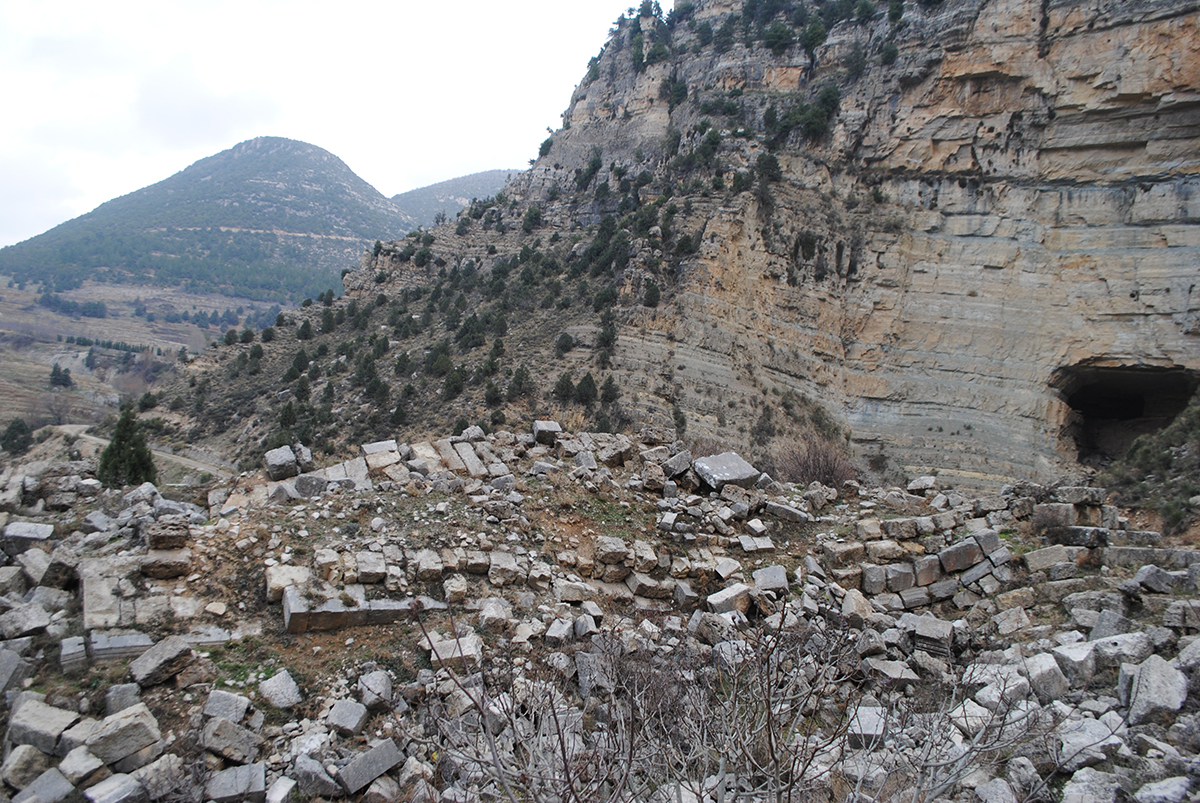 Afqa is a beautiful mountain village above Byblos. Its inhabitants are predominantly Shia Muslims, but very pious Maronite villages, namely Ghabat and Aqoura, are located nearby. Known in ancient times as Apheca or Afeka, which can be translated to ‘source,’ the name Afqa is also given to the cave — the main source of Nahr Ibrahim River (Adonis River).The impressive entrance of the cave and the marvelous surroundings inspired ancient mythology. The cave appears to be the symbol of the god Baal; and in front of the cave, a temple dedicated to Aphrodite (Venus), was built on the location of another spring.
Afqa is a beautiful mountain village above Byblos. Its inhabitants are predominantly Shia Muslims, but very pious Maronite villages, namely Ghabat and Aqoura, are located nearby. Known in ancient times as Apheca or Afeka, which can be translated to ‘source,’ the name Afqa is also given to the cave — the main source of Nahr Ibrahim River (Adonis River).The impressive entrance of the cave and the marvelous surroundings inspired ancient mythology. The cave appears to be the symbol of the god Baal; and in front of the cave, a temple dedicated to Aphrodite (Venus), was built on the location of another spring.
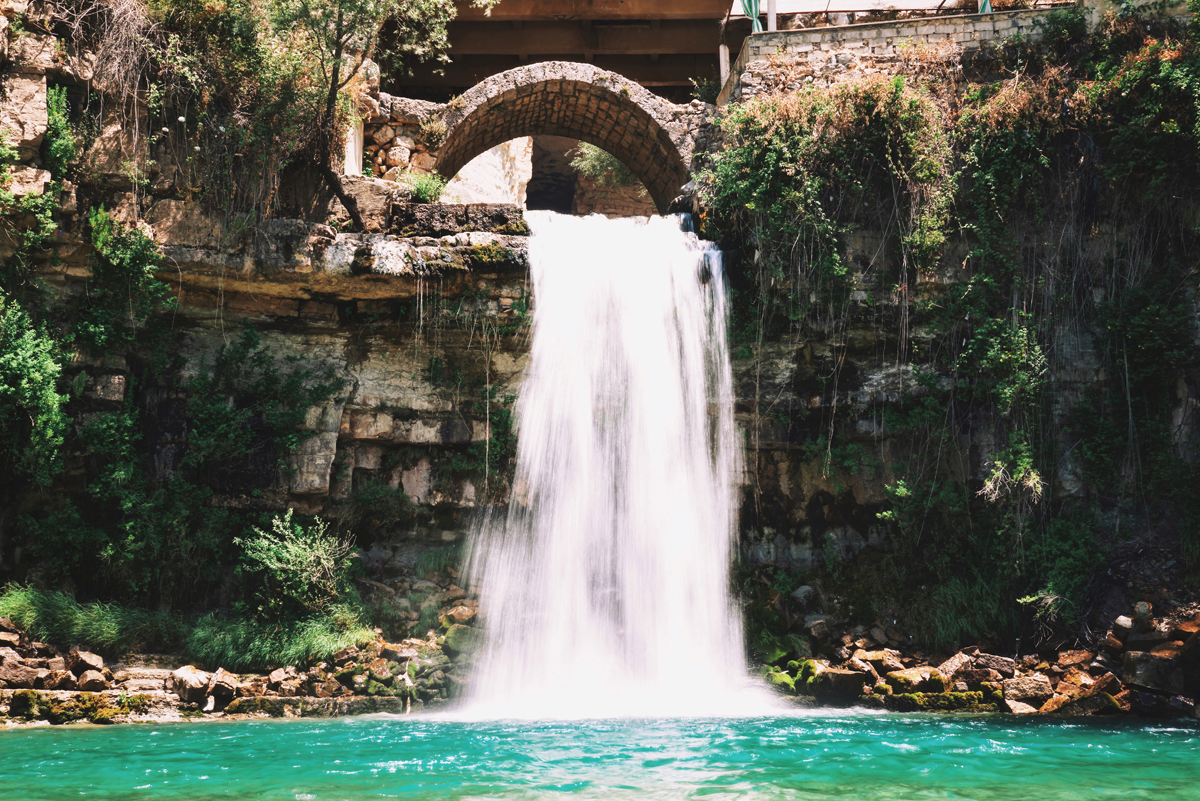 The water from the spring of the Afqa cave meets the water of the spring of Venus’s temple to generate the Nahr Ibrahim River. The remains of Venus’s Roman temple, which was destroyed by Constantine the Great, can be found front of the grotto. It was rebuilt during the reign of Julian (360 – 363 AD). Fertility rituals were once held in this temple, later to be converted into Christian and Islamic rituals. In the basement of the temple lies an oratory dedicated to the Virgin Mary. It is called Saydet El Zahra (Our Lady of the Flower). This title indicates the importance of flora in the region, especially in spring. It reflects the area’s natural beauty; all kinds of flowers can be found in the beautiful valley, including cyclamens, anemones, tulips, orchids and irises.
The water from the spring of the Afqa cave meets the water of the spring of Venus’s temple to generate the Nahr Ibrahim River. The remains of Venus’s Roman temple, which was destroyed by Constantine the Great, can be found front of the grotto. It was rebuilt during the reign of Julian (360 – 363 AD). Fertility rituals were once held in this temple, later to be converted into Christian and Islamic rituals. In the basement of the temple lies an oratory dedicated to the Virgin Mary. It is called Saydet El Zahra (Our Lady of the Flower). This title indicates the importance of flora in the region, especially in spring. It reflects the area’s natural beauty; all kinds of flowers can be found in the beautiful valley, including cyclamens, anemones, tulips, orchids and irises.
Muslims and Christians honor the Virgin Mary at this site, where she is referred to as Sayyida Fatima El Zahra’, Sayyida Zahra or Sayyida Saydet Afqa or Saydet Rafqa.
Loading


